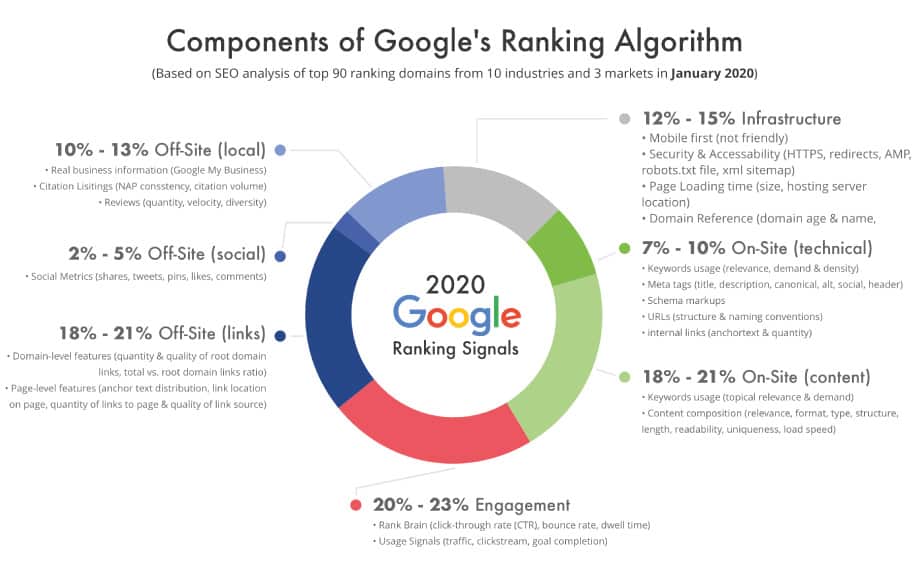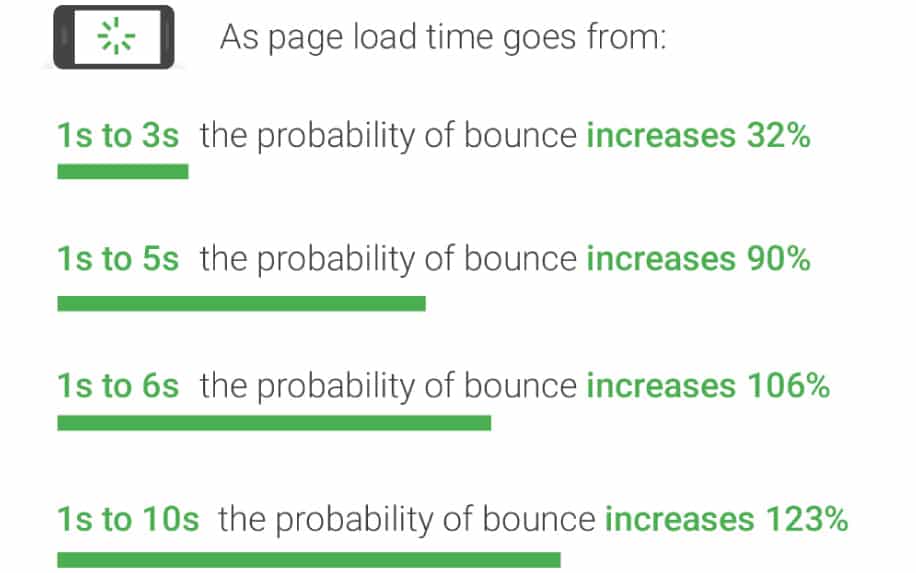In today’s digital marketplace, everyone needs web hosting services. Everyone from freelance writers, to world-renowned actors to professional chefs and everything in between have some kind of virtual space that tells you everything you need to know about them.
Getting your website online has become a more accessible goal than ever before, but to get your web presence started off right you may be best looking into the amazing world of web hosting services.
What are Web Hosting Services?
Building a presence online is like building a house; without a strong foundation and support over time things could start to fall apart.
A web hosting service is what its name implies, a service that hosts your website.
A web hosting service can offer a strong foundation to whatever you want to put out there, from blogs, to websites to online stores. A web hosting service is a company that holds a large amount of internet space available for you to essentially rent.
Table of Contents
Choosing the Best Hosting Service for SEO, CRO and UX
Your web hosting service will have a concrete impact on your business’ bottom line. From a business point of view, a website does two things:
- Attracts potential customers,
- Convinces them to make a purchase.
Your hosting plan is fundamental to each of these goals. Let’s start with how hosting impacts your ability to attract users.
Website Hosting and SEO
Web hosting and technical SEO are inseparable. In fact, about a third of SEO ranking signals are related to your hosting:

For one thing, your site’s speed impacts your SEO in three crucial ways.
- It improves Google’s ability to crawl your site,
- Google will prioritise faster websites in search results,
- Users spend greater amounts of time on faster sites, which signals to Google that your site is providing valuable content, so it will be prioritised even further.
In addition to just speed, Google takes account of the security credentials of your site, including security certificates which are supported by your host. Sites which meet certain security standards, like HTTPS and HSTS consistently outrank those which do not.
Finally, the reliability of your hosting provider greatly impacts your technical SEO. Put yourself in Google’s shoes for a second. You wouldn’t rank a site which has a lot of down time, because there’s a good chance that it will return a server error when users click on it.
Website Hosting and CRO/UX
The same basic principles impact your site’s ability to convert users into paying customers. We already said that a faster site offers a better UX, leading to longer browsing times. This means more time reading your content, and absorbing your messaging.
Similarly, secure hosting greatly impacts your conversion rates, especially on ecommerce stores.
If you don’t meet modern hosting security standards, most browsers won’t even let users visit your website, let alone enter their card details.
How Does a Web Hosting Service Work?
If any site exists on the internet, it is being ‘hosted’ by someone, somewhere, physically on a server.
Web-users come and go, accessing these servers to receive the host’s content.
Hosting draws out the lines for your ‘plot’ of space within one of these servers, and this becomes the home for all the files and content you wish to share with others.
A web-user visits your page, and any content you want hosted on this server gets shared directly to them. The best part is, on professional servers that sharing will be incredibly fast and efficient.
A web hosting service will work with your company to provide a stable and robust ‘plot’ of internet real-estate, integrate your designs seamlessly on to the web and help keep your presence alive with great support and customer service.
How Much Does This Cost?
Web hosting is a booming industry that is constantly expanding. This means that your company is spoiled for choice, with prices consistently low for the wealth of perks provided by web hosting services.
Many of the major services out there operate for you for as low as a few pounds a month, some even going under the £1 mark entirely. Web hosting services really want your business more than ever, so they’ve put a definite focus on being as approachable and affordable as possible.
Most starting websites will not impact your bottom-line very much, and the benefits from increased sales could well out-weight the costs.
Along with being able to share your company with the world in a safe and reliable way, nearly all the major web hosting services provide great quality-of-life incentives; effortless integration of websites made with outside tools such as WordPress, and round-the-clock support lines that are just a call away for starters.
All these services are designed to relieve you of the stress of maintaining your online presence, so that you can focus on more pressing matters in the day-to-day running of your company.
What to Look for in a Web Hosting Service
As you can tell, web hosting is an important investment. As such, you’ll want to choose the right service. However, the tricky thing is it’s also a highly technical investment. Being honest, most business owners aren’t technical experts.
They’re experts in running their business.
So how do you make sense of all of the different tech specs of various hosting providers? More importantly, how are you going to decide which ones are most important for your business’ bottom line?
Let’s take a look at some of the key variables.
Storage Space
As the name suggests, this is the amount of data you can store on your website. These days, this typically stands around the 5GB mark, but can go all the way up to unlimited plans. The thing to consider here is how much media you display on your site.
Things like images and videos will quickly eat your storage allowance.
You’ll also want to look into what happens when you want to update your storage allowance. As your business grows, you might start to invest more heavily in content marketing. Then your site will grow too.
Bandwidth
Bandwidth is essentially how much traffic your site can handle. The best analogy here is a busy road. A dual carriageway can easily handle hundreds of cars every hour without becoming congested.
However, if thousands of drivers tried to drive down the same road, things would quickly start to slow down.
Bandwidth works exactly the same way. As such, it’s generally best to purchase the plan which offers the highest bandwidth within your budget, all else being equal. Remember, the speed of your site has a direct impact on your sales figures:

You should also consider what’s known as bandwidth overage.
This is your host’s policy for what happens if you go above your allowance. Generally, hosting services will do one of three things:
- Turn off your site entirely,
- Automatically charge additional fees,
- Notify you that you’ve exceeded your allowance, and give you time to upgrade without penalising you.
Which of these is preferable should go without saying.
Business Email Hosting
Your hosting service is also generally responsible for hosting your business email accounts. There are a number of different things to look for here, including:
- The number of unique email addresses you’re offered,
- The amount of inbox space each address has,
- Which mail clients are supported as standard.
The key thing here is to take a long view when making business decisions. Even if you have 2-3 members of staff at the moment, it makes sense to invest in more business email addresses straight away.
This allows you to easily add new members of the team, as well as creating email address for different business functions, like marketing@yourdomain.com or Customersupport@yourdomain.com.
Where Should I Start With Web Hosting Services?
There are so many web hosting services out there vying for your business that knowing where to start can be a dizzying thought. The best place to begin is to determine what your company needs. Consider asking yourself these questions:
- How many visitors do we want/anticipate getting per month to our website?
- What is the scope of our website? How big in gigabytes do we really need it?
Do we need a support structure to reach out to if technical problems arise? - What can we afford?
Once you answer those questions, the next step is to research. A quick search online will turn up lots of lists of web hosting services, showing what one company can offer versus another, and how much each will cost. Use your answers from the previous questions to really determine what you need.
If you anticipate a lot of visitors then aim for high bandwidth, or if you want a site dense with information and content then see what storage options are provided. Keep going until you find one that suits your needs.
At this point it may be useful to have a website made in existing tools such as WordPress or whatever you prefer, many services allow easy integration of your designs already so make sure to note which.
Once you’ve found and reached out to an appropriate web hosting service, you can start to ask what kind of hosting is required for what you want to achieve.
There are shared hosting plans, as well as cloud hosting plans to really up your storage, or even dedicated hosting plans for those that want a server all to themselves.
Again, there are many options for many different purposes, and by contacting a web hosting service you’ll be easily able to find what you need.
Finally, you’ll need to decide on a Domain Name for your site. A Domain Name is what anyone uses to find a website so you’ll want to pick something easy to remember and that’s instantly reflective of your company.
Going forward without one is like leaving your site in deep space and hoping somebody will find it, it hurts your brand more to not have one.
You can already have one decided on before following any of the steps in this article too, because your domain name is YOURS and can be taken with you on to any other web hosting service.
After securing a domain name and settling into your plan with your web hosting service, you’re good to go! If you’re starting off small, options for expansion are very easy to get from your Service.
If you’re starting off big, then you can relax in the fact that you’re paying for a truly quality product. A web hosting service can be an invaluable resource for finding your way in the sometimes-confusing online world.
Environmental Impact of Different Hosting Options: Choosing a Greener Website
In today’s eco-conscious world, website owners increasingly consider the environmental impact of their online presence. Understanding the differences between hosting options allows you to make informed choices that align with your sustainability goals.
Traditional Hosting’s Carbon Footprint:
- Energy Consumption: Data centers housing servers consume vast amounts of energy for operating equipment and maintaining cool temperatures. This reliance on fossil fuels contributes significantly to greenhouse gas emissions.
- E-waste: Regularly upgrading and replacing outdated hardware creates electronic waste, impacting landfills and requiring responsible disposal practices.
Green Hosting Solutions:
- Renewable Energy Sources: Green hosting companies prioritize renewable energy sources like wind, solar, and geothermal power to reduce their carbon footprint.
- Energy-Efficient Hardware: They utilize energy-efficient servers and optimize data center cooling systems to minimize energy consumption.
- Carbon Offset Programs: Some providers invest in carbon offset projects like tree planting or renewable energy initiatives to compensate for their remaining emissions.
Benefits of Green Hosting:
- Reduce your website’s environmental impact: Contribute to a more sustainable digital world by minimizing your carbon footprint.
- Attract eco-conscious customers: Consumers increasingly value eco-friendly practices, and choosing green hosting demonstrates your commitment to sustainability.
- Potential cost savings: Some green hosting providers offer competitive rates due to their efficient operations and reliance on renewable energy.
Types of Green Hosting:
- Shared Green Hosting: Offers basic features with a focus on renewable energy and eco-friendly practices.
- Green VPS Hosting: Provides more control and resources while ensuring environmental responsibility.
- Green Cloud Hosting: Leverages the scalability and efficiency of cloud technology with a commitment to sustainability.
Choosing the Right Green Hosting Provider:
- Transparency: Look for providers who clearly communicate their green practices and energy sources.
- Certifications: Consider providers with independent certifications like “Green Web Foundation” or “Climate Neutral” for added assurance.
- Features and Pricing: Balance your environmental goals with other website needs like performance, security, and budget.
Remember: Green hosting isn’t always the cheapest option, but choosing a provider with transparent practices and a commitment to sustainability allows you to minimize your website’s environmental impact without compromising performance or features.
Security Best Practices for Website Owners: Protecting Your Online Presence
A secure website is crucial for protecting your users’ data, maintaining your reputation, and avoiding costly downtime. Here are some key security best practices every website owner should implement:
1. Strong Passwords and Authentication:
- Unique and complex passwords: Use strong, unique passwords for all accounts associated with your website, and avoid using the same password for multiple platforms. Consider a password manager to help create and remember strong passwords.
- Enable two-factor authentication (2FA): Add an extra layer of security by enabling 2FA wherever available, requiring an additional verification code beyond just a password for login attempts.
- Regular password changes: Update your passwords regularly, aiming for every 3-6 months, to minimize the risk of unauthorized access if compromised.
2. Software Updates and Patching:
- Keep your website software updated: Regularly update your content management system (CMS), plugins, themes, and any other software used on your website to address known vulnerabilities and security patches.
- Update server software: Ensure your web server software and operating system are also updated promptly to patch vulnerabilities and fix potential security holes.
- Automate updates where possible: Set up automatic updates for software whenever possible to minimize the risk of missing critical security patches.
3. Secure Hosting and Backups:
- Choose a reputable hosting provider: Select a web hosting provider with a strong security track record and that offers features like firewalls, intrusion detection, and malware scanning.
- Regular backups: Regularly back up your website data and store them securely off-site to recover from potential attacks or accidental data loss.
- Test your backups: Ensure your backups are complete and functional by periodically performing test restores to verify their integrity.
4. Website Security Measures:
- Secure Sockets Layer (SSL)/Transport Layer Security (TLS) certificate: Implement an SSL/TLS certificate to encrypt communication between your website and visitors, protecting sensitive data like passwords and credit card information.
- Web application firewall (WAF): Consider using a WAF to filter incoming traffic and block malicious requests before they reach your website, protecting against common attacks like SQL injection and cross-site scripting (XSS).
- Regular security scans: Use website vulnerability scanners to identify potential security weaknesses and address them promptly before attackers exploit them.
5. User Management and Permissions:
- Grant least privilege access: Assign users only the minimum level of access required for their specific roles to minimize the potential damage if their credentials are compromised.
- Regularly review user accounts: Regularly review and remove inactive user accounts to reduce the attack surface and potential access points.
- Monitor user activity: Implement tools to monitor user activity and flag suspicious behavior that might indicate unauthorized access attempts.
6. Stay Informed and Proactive:
- Subscribe to security advisories: Sign up for security advisories from relevant organizations and software vendors to stay informed about new threats and vulnerabilities.
- Educate yourself and your team: Keep yourself and your team updated on best security practices and potential threats through training and ongoing awareness programs.
- Have a security incident response plan: Develop a clear plan for responding to security incidents, including data breaches, malware infections, and denial-of-service attacks.
Common Website Maintenance Tasks and Hosting Provider Support: Ensuring a Smooth Online Presence
Maintaining a website requires regular attention to ensure optimal performance, security, and user experience. While some tasks are easily handled by website owners, others might benefit from the expertise and tools offered by hosting providers. Here’s a breakdown of common maintenance tasks and how your hosting provider can support your efforts:
Essential Maintenance Tasks:
- Content Updates: Regularly update your website content with fresh information, news, and blog posts to keep visitors engaged and improve SEO. Your hosting provider often offers user-friendly content management systems (CMS) to simplify adding and editing content.
- Plugin and Theme Updates: Outdated plugins and themes can pose security risks and compatibility issues. Update them regularly to address vulnerabilities and ensure smooth website operation. Many hosting providers offer automated update functionalities or notification systems for essential updates.
- Backups and Disaster Recovery: Regular backups are crucial to safeguard your website data in case of technical failures or cyberattacks. Some hosting providers offer automatic backup services and restore options for quick recovery.
- Security Scanning and Updates: Regularly scan your website for malware and vulnerabilities. Some hosting providers include basic security scans or offer security packages with advanced scanning and proactive threat detection.
- Performance Optimization: Monitor your website’s speed and optimize elements like images, code, and caching to ensure fast loading times. Many hosting providers offer performance optimization tools or CDN integration to improve website speed.
- Uptime Monitoring: Ensure your website remains accessible to visitors by monitoring its uptime. Some hosting providers offer uptime monitoring services and email alerts for downtime occurrences.
Additional Tasks Where Hosting Providers Can Help:
- SEO Optimization: Some hosting providers offer SEO tools and resources to help improve your website’s search engine ranking.
- Email Management: Many hosting providers include email hosting services, allowing you to create and manage email accounts for your domain.
- Domain Management: Your hosting provider likely helps manage your domain name registration, renewal, and DNS settings.
- Marketing Automation: Some providers offer marketing automation tools for email campaigns, lead generation, and website analytics.
- Advanced Security Features: For higher security needs, providers might offer features like web application firewalls (WAFs) and advanced malware protection.
Benefits of Utilizing Hosting Provider Support:
- Expertise and Resources: Hosting providers have the expertise and tools to handle complex tasks efficiently.
- Time Savings: Delegate maintenance tasks to hosting providers to focus on core business activities.
- Cost-Effectiveness: Consider bundled hosting plans that include essential maintenance services at a competitive price.
- Peace of Mind: Gain peace of mind knowing your website is in the hands of professionals.
Choosing the Right Hosting Provider:
- Evaluate your website’s needs and budget.
- Compare maintenance features and services offered by different providers.
- Read reviews and testimonials from other website owners.
- Seek clear communication and responsive customer support.
By understanding your maintenance needs and exploring the support options offered by your hosting provider, you can create a seamless and efficient website management process, ensuring a secure, performant, and engaging online presence for your visitors.
Glossary of Web Hosting Terms for Beginners:
Basic Concepts:
- Domain Name: The unique address users type to access your website (e.g., yourcompany.com).
- Web Hosting: Service that provides storage space and resources for your website’s files and makes it accessible online.
- Web Server: Computer that stores your website files and delivers them to visitors when requested.
- Hosting Provider: Company that owns and manages the web servers and offers hosting services.
Hosting Types:
- Shared Hosting: Multiple websites share resources on a single server, often the most affordable option for beginners.
- VPS Hosting (Virtual Private Server): Offers dedicated resources within a shared server, providing more control and performance than shared hosting.
- Dedicated Hosting: Entire server dedicated to your website, offering maximum control and resources, ideal for high-traffic or demanding websites.
- Cloud Hosting: Leverages a network of servers to provide scalable and flexible hosting solutions.
Common Features:
- Bandwidth: Amount of data transferred between your website and visitors each month.
- Disk Space: Storage space on the server for your website files, images, and databases.
- Uptime: Percentage of time your website is accessible to visitors (ideally close to 100%).
- Email Hosting: Service that allows you to create and manage email addresses associated with your domain name.
- FTP (File Transfer Protocol): Method for uploading and downloading files to your web server.
Security and Performance:
- SSL/TLS Certificate: Encrypts communication between your website and visitors, protecting sensitive data.
- SSL/TLS Padlock: Icon displayed in browsers indicating a secure website connection.
- Content Delivery Network (CDN): Distributes your website content across geographically dispersed servers for faster loading times globally.
- Backup: Copy of your website files stored separately in case of data loss or technical issues.
Other terms:
- CMS (Content Management System): Software like WordPress that simplifies website creation and management.
- Plugin: Extends the functionality of your website with additional features.
- Theme: Controls the design and appearance of your website.
- DNS (Domain Name System): Translates domain names into IP addresses that computers understand.
- SEO (Search Engine Optimization): Optimizing your website to rank higher in search engine results.
Remember: This is just a basic glossary. Many other terms might be encountered depending on your specific hosting needs and chosen provider.
FAQs: Addressing Common Web Hosting Concerns:
1. Which type of hosting is right for me?
The best hosting type depends on your website’s needs and budget. Consider factors like traffic volume, resource requirements, technical expertise, and future growth potential. For beginners, shared hosting is often a good starting point. As your website grows, you can upgrade to VPS or dedicated hosting for more control and performance.
2. What features are essential in a hosting plan?
Look for essentials like sufficient bandwidth, disk space, and uptime guarantees. Consider additional features like email hosting, SSL certificates, and backups based on your specific needs.
3. How much does web hosting cost?
Shared hosting plans can be very affordable, while dedicated hosting incurs higher costs. Compare plans from different providers and weigh cost against features and performance offered.
4. What happens if I run out of disk space or bandwidth?
Most providers offer upgrade options if you exceed your plan’s limits. Discuss upgrade policies and costs with your provider beforehand.
5. How do I migrate my website to a new hosting provider?
Many providers offer free migration services. Choose a provider with easy migration tools and clear instructions to minimize downtime during the transition.
6. What kind of customer support does the provider offer?
Look for 24/7 support options through phone, live chat, or email. Ensure the support team is knowledgeable and responds promptly to your inquiries.
7. Can I cancel my hosting plan if needed?
Check the provider’s cancellation policy and ensure it aligns with your needs. Look for flexible plans with clear refund options if necessary.
8. Is web hosting secure?
Choose a provider with robust security measures like firewalls, malware protection, and regular backups to protect your website and data.
9. What is SEO hosting, and do I need it?
SEO hosting offers specific features like optimized server configurations and faster loading times, potentially benefiting SEO performance. Evaluate your website’s SEO goals and budget before deciding if it’s necessary.
10. How can I optimize my website for performance?
Choose a reliable hosting provider and optimize your website code, images, and caching to improve loading times and user experience.
Conclusion: Build Your Website’s Foundation with the Right Hosting Partner
Choosing the right web hosting solution is crucial for your website’s success. By understanding your needs, exploring different hosting options, and asking the right questions, you can make an informed decision that fuels your online presence.
Consider factors like performance, security, scalability, and support to find a provider that grows with your website and empowers your ambitions. Don’t hesitate to research, compare, and seek expert advice – your website deserves a solid foundation for its journey in the digital world.
ProfileTree are a full-service digital agency specialising in web design, content marketing and social media marketing. We also offer a range of web hosting services. To find out more about our web hosting services, click here or follow our blog!


